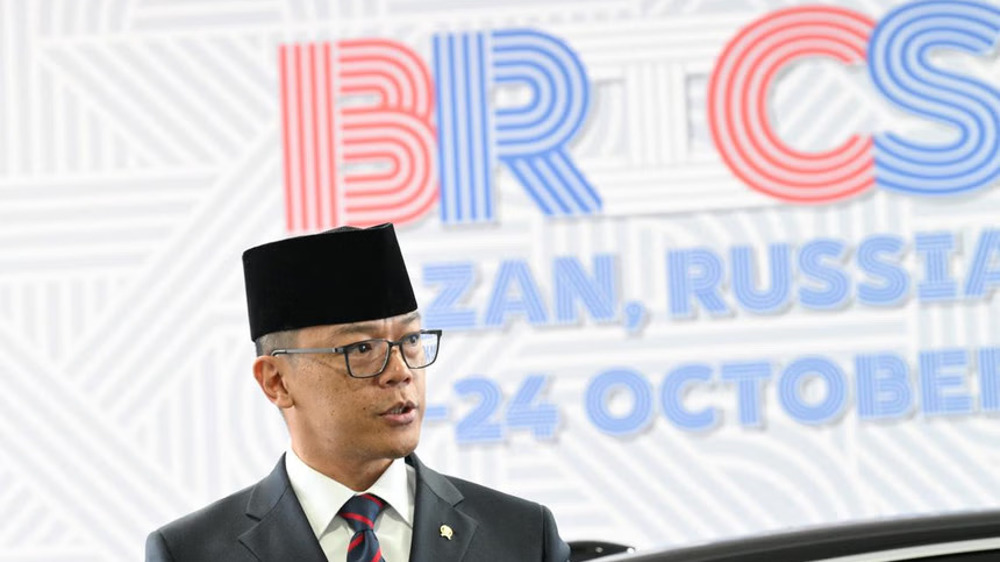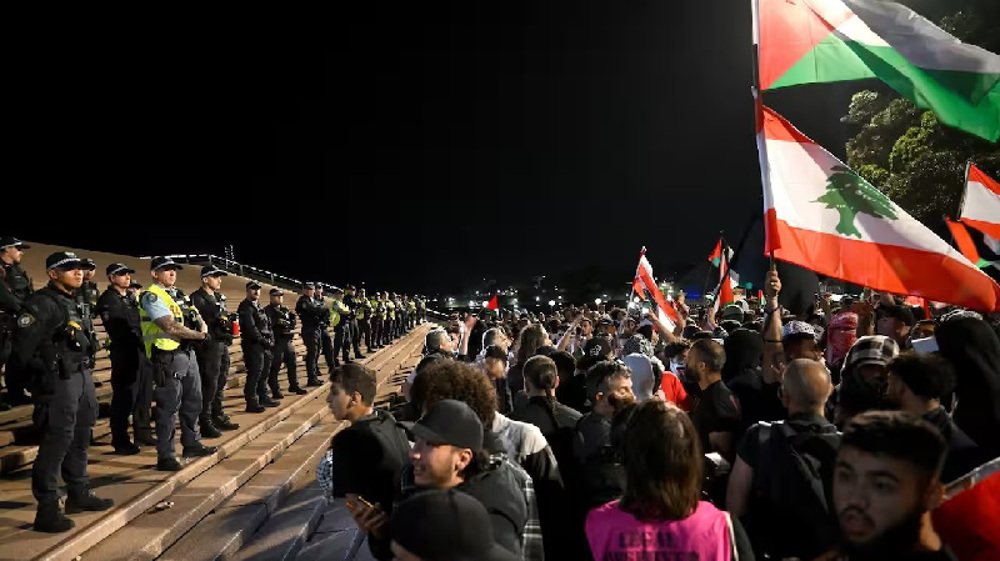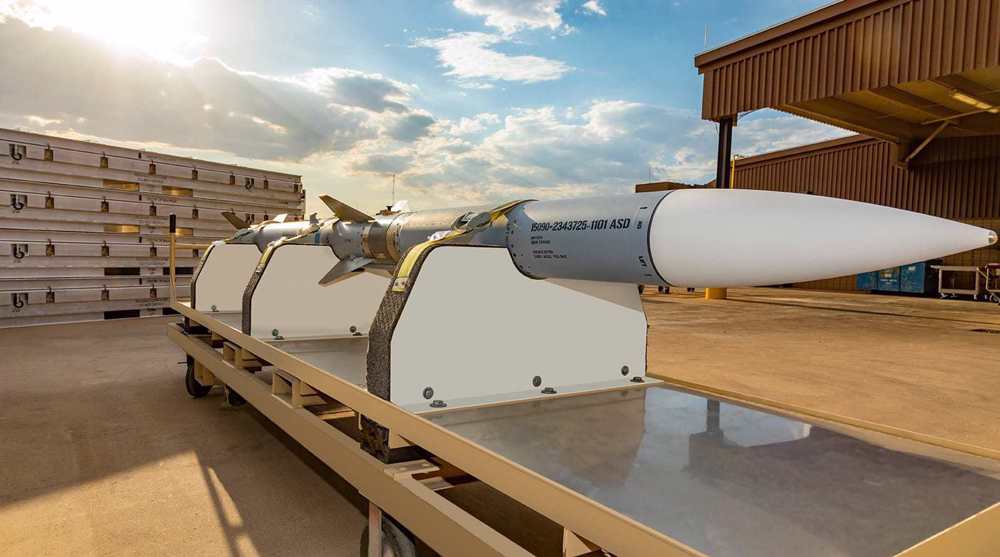Japan marks 73rd anniversary of US nuclear bombing of Hiroshima
Japan is marking 73 years since the United States dropped a nuclear bomb on Hiroshima, with tens of thousands of people taking part in a solemn and emotional ceremony to honor the victims of the world’s first ever atomic attack.
On August 6, 1945, an American B-29 bomber Enola Gay dropped its atomic payload over the port city at 8:15 a.m. local time, ultimately killing 140,000 people.
The bombing utterly destroyed almost everything within 10 square kilometers in the downtown area.
Many died immediately while others succumbed to their injuries or radiation-related illnesses weeks, months, and years later.

Three days later, a second nuclear attack on Nagasaki killed another 70,000 people. Japan surrendered on August 15, and brought the hostilities of World War II to an end. It was, however, a beginning to the nuclear age.
On Monday, tens of thousands of people gathered in Hiroshima, located about 700 kilometers west of Tokyo, to mark the occasion, with Prime Minister Shinzo Abe in attendance.
The participants – among them survivors and representatives from 80 countries -- observed a minute’s silence at 8:15 a.m., the moment the Hiroshima tragedy occurred.

Hiroshima Mayor Kazumi Matsui addressed the crowd at the ceremony, recounting the scene of the tragedy on the day of the bombing. He asked the audience to listen “as if you and your loved ones were there.”
“If the human family forgets history or stops confronting it, we could again commit a terrible error," Matsui said.
Calling nuclear deterrents and umbrellas “inherently unstable and extremely dangerous,” Matsui urged world leaders to negotiate in good faith to eliminate their atomic weapons.
He also called for the denuclearization of the Korean Peninsula, saying, “We in civil society fervently hope that the easing of tensions on the Korean Peninsula will proceed through peaceable dialogue.”
Matsui further urged the prime minister to help the Treaty on the Prohibition of Nuclear Weapons — also known as the Nuclear Weapon Ban Treaty — take effect.

Abe also addressed the crowd, repeating the vow to lead efforts for a nuclear-free world.
In order to promote cooperation for having a world free of nuclear arsenal, Abe said, world leaders must understand “the reality of the tragedy of nuclear attacks.”
United Nations Secretary General Antonio Guterres, who also attended the event, in turn, warned about rising tensions between nuclear-armed states, saying “Nuclear arsenals are being modernized and, in some cases, expanded.”
“What occurred in Hiroshima on 6 August 1945 cannot and must not ever happen again,” he said.
Japan, now a US ally, falls under the protection of America’s nuclear umbrella and has so far refused to sign the Treaty on the Prohibition of Nuclear Weapons, which was adopted in July 2017.
Jan. 15: ‘Axis of Resistance’ operations against Israeli occupation
VIDEO | US fires: Criticism mounts over govt. failure to respond
VIDEO | Fears, hope in Gaza amid intensified ceasefire efforts
VIDEO | Press TV's news headlines
Hamas: Ceasefire agreement result of steadfastness, resistance in Gaza over 15 months
Hamas thanks Iran, Resistance Front following achievement of ceasefire in Gaza
'Capitulation': Israeli officials and media concede Gaza defeat as truce unfolds
'Gaza has won': Social media users react to ceasefire with mix of relief, joy











 This makes it easy to access the Press TV website
This makes it easy to access the Press TV website